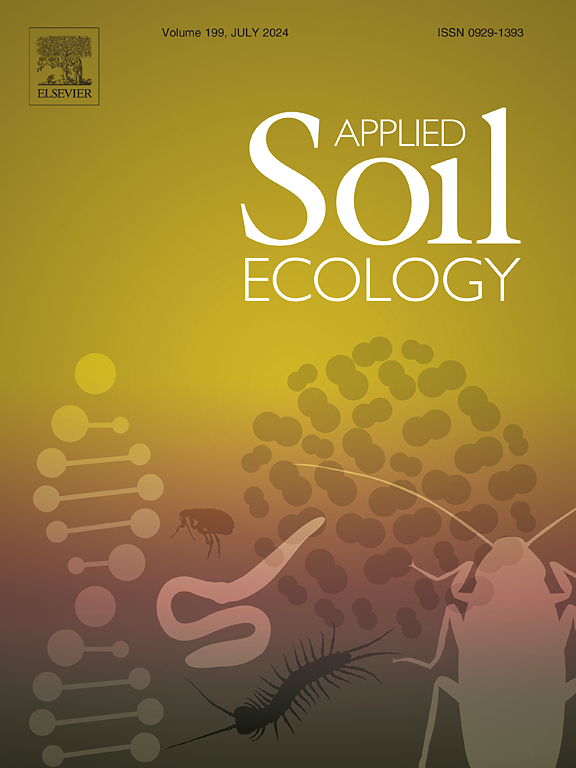Simulated plant-derived exudate pulses promote maize phosphorus uptake by recruiting specific rhizosphere microbial communities and shaping root metabolites
IF 4.8
2区 农林科学
Q1 SOIL SCIENCE
引用次数: 0
Abstract
Exudates are known to drive rhizosphere interactions, yet their distinct roles in enhancing plant phosphorus (P) uptake through microbial recruitment and metabolic regulation remain unclear. In this study, we investigated whether these exudates could stimulate soil P mobilization and improve the P uptake of maize. In brief, we added two concentrations of six exudates once every five days, naturally found in plant roots or microbes and released into the soil during maize growth. The results showed that adding exudate substances significantly increased the biomass and P uptake of maize. This enhancement was linked to alterations in root metabolism and modified plant-microbe interactions in the rhizosphere. Specifically, exudate additions increased the relative abundance of Gaiellales (from 2.7 % to 4.7 %), which positively correlated with shoot P content and soil phosphatase activity, suggesting a potential role in P mobilization, particularly when plant-derived exudates were introduced. Furthermore, a random forest model identified key exudate-affected metabolites (Met2 and Met25) that correlated significantly with maize growth and P uptake. Notably, the microbial community showed a stronger correlation with maize P uptake than root metabolism. The findings indicate that plant-derived exudates are more effective than microbial-derived exudates in improving plant P uptake. This research will provide a theoretical support for utilizing plant exudates to improve the soil phosphates bioavailability.
模拟植物源性分泌物脉冲通过招募特定根际微生物群落和塑造根代谢产物来促进玉米对磷的吸收
众所周知,渗出物可以驱动根际相互作用,但它们在通过微生物招募和代谢调节促进植物磷(P)吸收方面的独特作用尚不清楚。在本研究中,我们研究了这些渗出物是否能促进土壤磷的动员和提高玉米对磷的吸收。简而言之,我们每五天添加两种浓度的六种分泌物,这些分泌物自然存在于植物根系或微生物中,并在玉米生长期间释放到土壤中。结果表明,添加渗出物质显著提高了玉米生物量和磷吸收量。这种增强与根代谢的改变和根际植物与微生物相互作用的改变有关。具体来说,渗出液的添加增加了盖ellellales的相对丰度(从2.7%增加到4.7%),这与茎部P含量和土壤磷酸酶活性呈正相关,表明盖ellellales在P动员中有潜在的作用,特别是当植物源渗出液被引入时。此外,随机森林模型确定了与玉米生长和磷吸收显著相关的关键分泌物影响代谢物(Met2和Met25)。值得注意的是,微生物群落与玉米磷吸收的相关性强于根系代谢。结果表明,植物源性渗出液比微生物源性渗出液更能促进植物对磷的吸收。本研究将为利用植物渗出液提高土壤磷素生物利用度提供理论支持。
本文章由计算机程序翻译,如有差异,请以英文原文为准。
求助全文
约1分钟内获得全文
求助全文
来源期刊

Applied Soil Ecology
农林科学-土壤科学
CiteScore
9.70
自引率
4.20%
发文量
363
审稿时长
5.3 months
期刊介绍:
Applied Soil Ecology addresses the role of soil organisms and their interactions in relation to: sustainability and productivity, nutrient cycling and other soil processes, the maintenance of soil functions, the impact of human activities on soil ecosystems and bio(techno)logical control of soil-inhabiting pests, diseases and weeds.
 求助内容:
求助内容: 应助结果提醒方式:
应助结果提醒方式:


